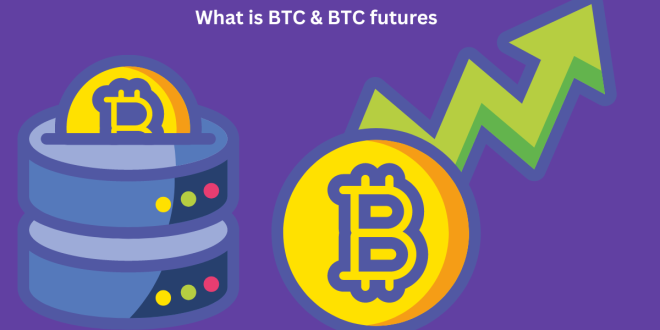What is BTC & BTC futures?
BTC refers to Bitcoin, which is a decentralized digital currency. It was invented in 2008 by an unknown person or group of people using the pseudonym Satoshi Nakamoto. Bitcoin operates on a peer-to-peer network, allowing users to transact directly without the need for intermediaries like banks.
Bitcoin is based on blockchain technology, a distributed ledger that records all transactions across a network of computers. It uses cryptographic techniques to secure transactions and control the creation of new units. Bitcoin’s supply is limited to 21 million coins, making it a deflationary currency.
Bitcoin has gained significant attention and popularity due to its potential as an alternative store of value and a medium of exchange. It is often referred to as a cryptocurrency because it uses cryptographic techniques to secure transactions and control the creation of new units.
Bitcoin’s value is determined by supply and demand dynamics in the market, and its price can be subject to significant volatility. It has been recognized as a speculative investment asset and has also gained acceptance as a payment method by various merchants and businesses.
It’s important to note that while Bitcoin and other cryptocurrencies have potential benefits, they also carry risks. Investors should exercise caution, conduct thorough research, and consider their risk tolerance before getting involved with Bitcoin or any other digital asset.
BTC futures,
also known as Bitcoin futures, are financial contracts that allow traders to speculate on the future price of Bitcoin. They are derivative contracts that derive their value from the underlying cryptocurrency, Bitcoin.
In a BTC futures contract, two parties agree to buy or sell Bitcoin at a predetermined price at a specified date in the future. One party takes a long position, agreeing to buy Bitcoin, while the other takes a short position, agreeing to sell Bitcoin. The agreed-upon price is known as the futures price.
BTC futures contracts enable traders to profit from the price movements of Bitcoin without actually owning the underlying asset. They provide an opportunity for investors to speculate on the future price direction of Bitcoin, whether they believe it will rise (going long) or fall (going short).
Futures contracts have an expiration date, after which the contract is settled. Settlement can occur through physical delivery, where the actual Bitcoin is exchanged, or through cash settlement, where the difference between the futures price and the spot price of Bitcoin is settled in cash.
BTC futures are traded on various regulated exchanges, such as the Chicago Mercantile Exchange (CME) and the Bakkt exchange. They are popular among institutional investors and traders looking to manage risk or gain exposure to Bitcoin’s price movements.
It’s important to note that trading futures involves a high level of risk, and individuals should thoroughly understand the market and associated risks before engaging in futures trading.
BTC (Bitcoin) is a type of cryptocurrency, which is a digital or virtual currency that uses cryptography to secure and verify transactions and to control the creation of new units. Cryptocurrencies are decentralized, meaning they are not controlled by a central authority, like a government or a bank. Instead, they rely on a distributed ledger technology called blockchain, which maintains a continuously growing list of transactions that is secured through cryptographic algorithms.
Bitcoin was the first and most well-known cryptocurrency, created in 2009 by an unknown person or group using the pseudonym Satoshi Nakamoto. Since then, thousands of other cryptocurrencies have been created, such as Ethereum, Ripple, and Litecoin, each with its own unique features and use cases.
Cryptocurrencies can be used for a variety of purposes, such as online purchases, investments, and remittances, among others. They offer several advantages over traditional currencies, such as lower transaction fees, faster transaction times, and greater security and privacy. However, they also come with risks, such as volatility, regulatory uncertainty, and the potential for fraud and hacking.
HOW TO INVEST STOCKS CLICK HERE
more information is here coin market
 Earn Money Forex Best Forex Trading Experience
Earn Money Forex Best Forex Trading Experience







